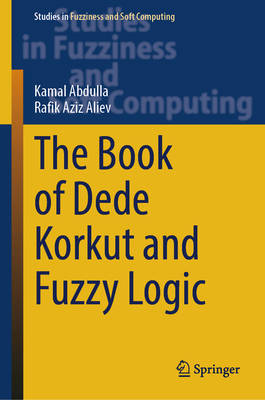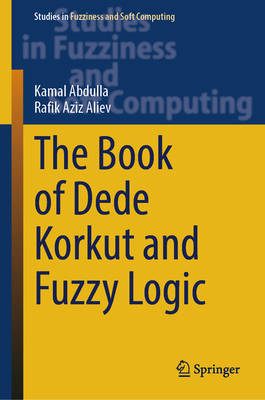
Je cadeautjes zeker op tijd in huis hebben voor de feestdagen? Kom langs in onze winkels en vind het perfecte geschenk!
- Afhalen na 1 uur in een winkel met voorraad
- Gratis thuislevering in België vanaf € 30
- Ruim aanbod met 7 miljoen producten
Je cadeautjes zeker op tijd in huis hebben voor de feestdagen? Kom langs in onze winkels en vind het perfecte geschenk!
- Afhalen na 1 uur in een winkel met voorraad
- Gratis thuislevering in België vanaf € 30
- Ruim aanbod met 7 miljoen producten
Zoeken
Omschrijving
This book constitutes an attempts to show, from a slightly different perspective, related to literature, the power of fuzzy logic as an effective and efficient tool to deal with problems and challenges faced by such human centric fields of science and knowledge. Humanities and Sciences are of "two basic cultures" of modern society. They are intertwined and give rise to a unified and coherent system. Fuzzy sets and fuzzy logic have been applied mainly in technical scientific fields, much less so in the humanities and social, psychological, cognitive, etc., sciences. There are very good reasons for considering this book from the perspective of fuzzy set theory. The first and foremost reason is that the founder of the theory of fuzzy logic, L. Zadeh wished that the principles of the theory of fuzzy logic be initially applied to all kinds of human centric sciences, notably social, economic, psychological, cognitive, etc., sciences, characterized by unstructured information. Another reason is tracking the formation of our ancient ancestor's mindware in the epos 'The Book of Dede Korkut', and seeking an answer to the question how much inclination is there towards tolerance and democratic approach in this mindware by using fuzzy logic. We hope that this book is interesting for the scholars studying application of fuzzy logic in all human centric sciences exemplified by humanistic, social, cognitive, etc., sciences as well as artificial intelligence, natural language processing and linguistic summarization.
Specificaties
Betrokkenen
- Auteur(s):
- Uitgeverij:
Inhoud
- Aantal bladzijden:
- 129
- Taal:
- Engels
- Reeks:
- Reeksnummer:
- nr. 438
Eigenschappen
- Productcode (EAN):
- 9783032059055
- Verschijningsdatum:
- 14/11/2025
- Uitvoering:
- Hardcover
- Formaat:
- Genaaid
- Afmetingen:
- 156 mm x 234 mm
- Gewicht:
- 390 g

Alleen bij Standaard Boekhandel
+ 488 punten op je klantenkaart van Standaard Boekhandel
Beoordelingen
We publiceren alleen reviews die voldoen aan de voorwaarden voor reviews. Bekijk onze voorwaarden voor reviews.









